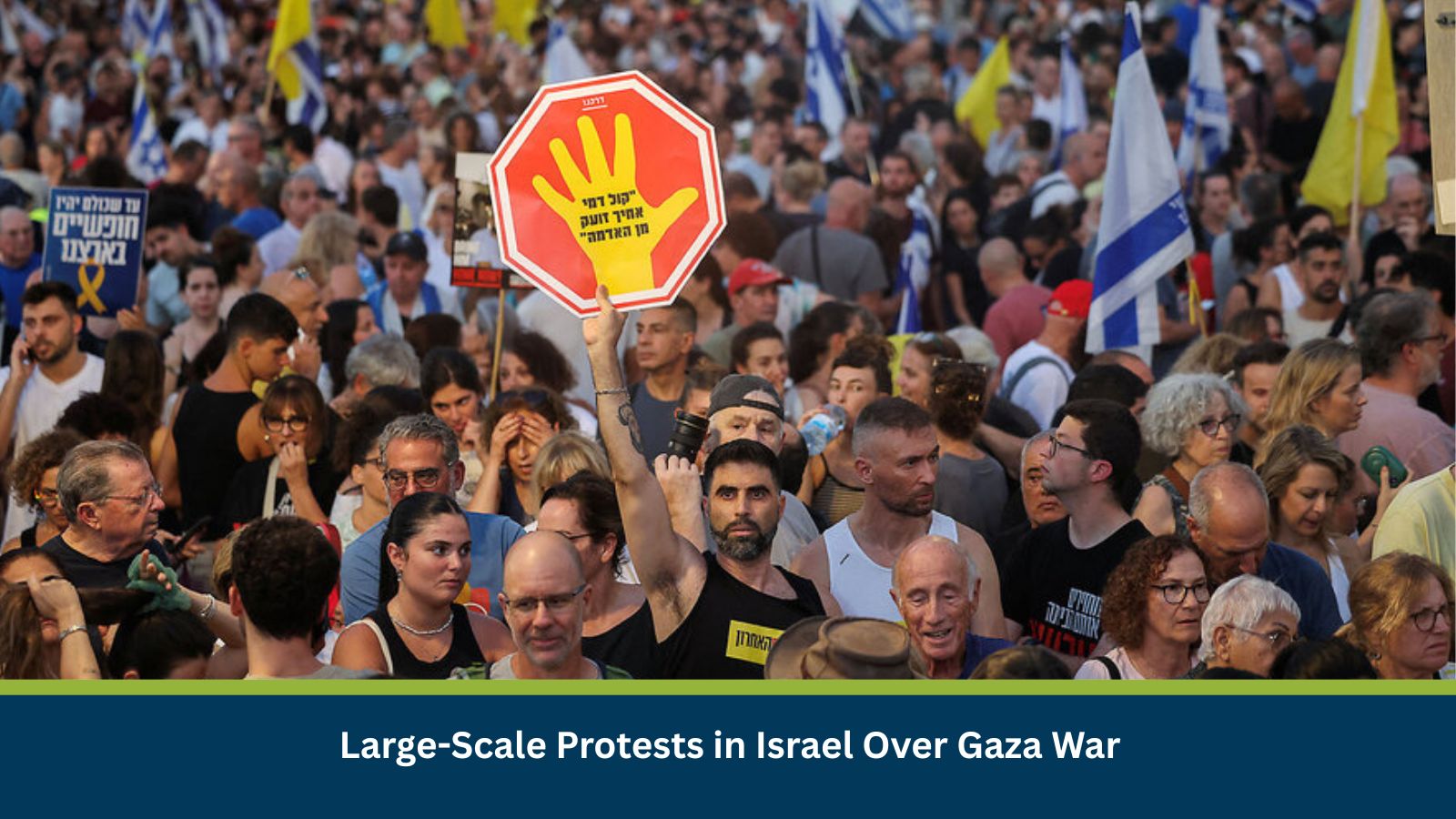Introduction
Israel is experiencing its largest demonstrations since the Gaza conflict began, with tens of thousands demanding an immediate ceasefire and the release of hostages. On 17 August, families of hostages spearheaded a huge rally in Tel Aviv’s Hostages Square, which organizers described as one of the most significant gatherings to date. Nationwide demonstrations have since erupted, highlighting growing public dissatisfaction with the government’s handling of the war.
Protests in Tel Aviv Intensify
The protests gained momentum after Israel’s security cabinet approved a controversial plan on 8 August to capture and fully occupy Gaza City, relocating nearly one million residents to southern Gaza. This decision drew international criticism and warnings from the United Nations about worsening displacement, which already affects nearly two million people. Even the military cautioned that the plan could endanger hostages.
Families of hostages and their supporters argue that the war lacks a clear strategic purpose. They believe that only a negotiated truce or ceasefire can ensure the safe return of captives. As a result, demonstrations in Tel Aviv and other cities have grown both in size and intensity, reflecting deep frustration with what many see as an open-ended war without tangible results.
Transport and Public Disruptions
The scale of the protests has caused widespread disruption to daily life. Key highways, including Route 1 linking Tel Aviv and Jerusalem, the Ayalon Highway, and several major junctions, have been blocked. General strikes in Tel Aviv have forced universities, offices, and businesses to close, while police deployed water cannons to disperse crowds. Nearly 40 arrests were made outside political party offices, and demonstrators also gathered outside the homes of government ministers, adding personal pressure on political leaders.
Hostage Families Drive Momentum
At the heart of the movement is the Hostages and Missing Families Forum, which has become the main organizer of the protests. The group maintains that prolonging the conflict only increases suffering and jeopardizes the chances of reaching a deal for hostage release. Their calls for a ceasefire have resonated with a broad spectrum of Israeli society, revealing deep polarization between government policy and public sentiment.
Outlook: More Protests Expected
The protests are unlikely to subside soon. If the government proceeds with its Gaza City plan, demonstrations are expected to intensify further. Mediation efforts led by Egypt, which has proposed a 60-day truce in exchange for hostage releases, remain ongoing. Hamas has signaled conditional agreement, and Israel’s response will determine the course of both the conflict and the protest movement. For now, disruptions to transport, education, and government operations are expected to continue in Tel Aviv, Jerusalem, and other protest hubs.
Recommendations for Organizations
- Monitor protest schedules and government security advisories to anticipate disruptions.
- Enable remote work where possible to minimize staff exposure to road blockades.
- Brief employees on protest hotspots and adjust travel or commute plans accordingly.
- Review contingency plans for office closures and workforce safety.
- Strengthen facility security in areas near government buildings or protest hubs.
Stay Ahead of Threats with datasurfr Predict
MitKat’s datasurfr delivers accurate, real-time, and contextualised data to help organisations respond swiftly to physical, environmental, and cyber threats.
With datasurfr Predict, our AI Agent not only provides context for unfolding events but also analyses vetted historical data to forecast how events are likely to evolve and their potential impact using industry and location-specific probabilistic scores.
Book a free demo today and see how datasurfr Predict can transform your risk preparedness: https://mitkatadvisory.com/why-datasurfr/






